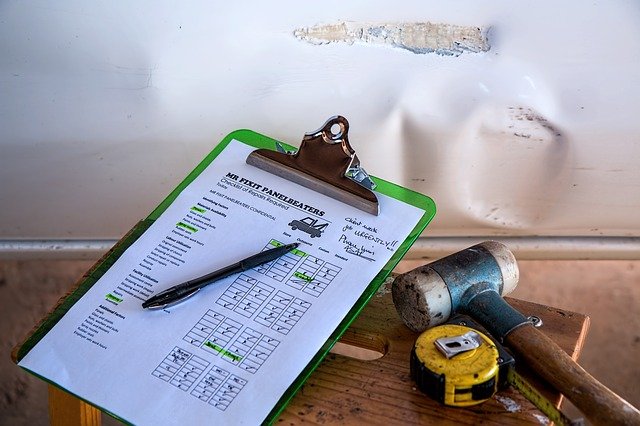Realty is a high-profile business that deals with prime properties around the world. In a competitive world and ever volatile socio-political and economic situations, realtors would want to have a comprehensive plan of action that they can rely on, for best results and profits. Astro-strategist Hirav Shah ensures that the businesses make the most of their investment and gain profits with his holistic approach to key issues in realty.
Astro Strategist cum Business Astrologer Hirav Shah, who has been working closely with many of the leading Real Estate giants of India and the USA as a Real Estate Strategist, Real Estate Investment Advisor, and has been actively involved in providing concrete predictions through Real Estate Astrology and Property Astrology.
Realty or real estate is a key industry for humans, as every human being dreams of owning his own house or a piece of land. Apart from such humble dreams, realty is a huge business that involves crores of rupees in investments on prime locations across the world. Land is a premium in most developed countries, where each sq foot costs millions of rupees. Well, the la-di-da of the world splurge in multiple properties across continents and also put in their hard-earned money into premium commercial spaces.
Except during acute recession, the real estate market is a viable market both for investors and those involved in brokering deals. The rich and the famous not only procure property, but also gamble with their investments by selling and reselling properties. Just like all things unique and precious, the swish lot buys and sells properties at regular intervals. Any property associated with a celebrity tag sells for a fortune on the buyer’s market, and this is a specific business in itself.
Real estate includes land and anything permanently attached to it, be it natural or man-made. If one were to look at how real estate came into common parlance, then it dates back to the 1660s and holds the oldest English sense of the word. Real derived from Latin which means existing, actual or genuine and estate refers to land. Hence real estate refers to property consisting of houses or land.
When it comes to real estate categories, it includes residential, commercial, industrial, raw land and special use land. And one can invest in real estate directly by purchasing a home or rental property or other form of property, or indirectly through a real estate investment trust. The second category applies to buying huge tracts of land, which requires some sense of credibility.
Table of Contents
The advantages of investing in real estate
1) Cash flow
Cash flow is the net income from a real estate investment after mortgage payments are made along with operating expenses. It’s a key benefit of investing in real estate. By paying away the mortgage, one builds up equity.
2) Tax breaks and deductions
Realty investors can take advantage of various tax breaks and deductions that can save money at tax time. In other words, one can deduct reasonable costs of owning, operating and managing a property.
3) Appreciation
Realty investors make money through rents, any profits generated by property-dependent business activity and appreciation. Real estate values appreciate over a period of time and with a good investment, one can reap benefits when it’s time to sell. That’s not all, in case of residential or commercial properties, rents tend to rise over a period of time, which leads to higher cash flow.
4) Build equity and wealth
As one shells down property mortgage, one tends to build equity. It becomes an asset that is part of your net worth. And as one builds equity, they can leverage to buy more properties and increase cash flow and wealth.
5) Portfolio diversification
Another major benefit of real estate is diversification potential. When realty is added to a portfolio of diversified assets, it can lower portfolio volatility and provide a higher return per unit of risk.
6) Realty leverage
Let’s take a small example. By putting in 20 per cent mortgage, you end up getting 100 per cent of the house you would want to buy. That is exactly what leverage is all about. Since real estate is a tangible asset, it can be used as collateral when finance is needed.
7) Risk-adjusted returns
Real estate value depends on the location, asset class and management. It is said that the average annual return over the past 50 years is about 11 per cent.
8) Inflation hedge
As economies expand, the demand for real estate drives rents higher. This in turn, translates into higher capital values.
9) Real estate investment trusts (REITS)
If you want to invest in real estate, but are not ready to own and manage properties, then a wiser decision would be to consider REITS. One can buy and sell publicly-traded REITS on major stock exchanges. Many trade under high volume, which means one can get in and out pretty quickly. REITS also pay 90 per cent of income to investors, which means higher dividends than most stocks.
Challenges faced by realty industry
a) Liquidity issues
While stock or bond transactions can be done in seconds, a real estate transaction can take months to close. Even with a broker, it could take time to find the right buyer.
b) Delayed infrastructure projects
Due to a variety of reasons, there could be delays in real estate projects which could jack up costs and similarly, there could be delays in infrastructure projects that could lead to fluctuations in prices and also prolong the time line. And if the investments are huge, such delays are a major cause for concern.
c) Land availability
One could be flush with funds, but land is a limited resource. So acquiring prime property at prime locations could be a challenge in itself. Of course, the rich and famous do manage to get the best of the pie, still it is an uphill task till the property is acquired.
d) Outdated building bye-laws
There are times when the government rules and regulations change. This could lead to delays, cancellation of projects, which is a hassle for someone looking to invest big time.
e) Tax and demand shifts
Different countries have different tax systems and patterns. When investing on foreign shores, these issues could create problems to the buyers. Also, what felt like a great investment yesterday may not have the same appeal today. This holds true when investing abroad, as everything depends on the development of a country and its future prospects.
f) Recession
When the general economy is sluggish, there is a direct impact on real estate business, because even the well-heeled business giants stay away from investing in large properties.
g) Supply chain and logistics glitches
These are manageable in most cases, but when they occur, they do create hassles for all those involved in projects.
All the above issues require the realtors to be prepared for different scenarios, and this requires revenue forecasting. Each problem can turn cumbersome in its own way and handling them requires business acumen and a sharp corporate mindset, says Hirav Shah, who is a well-known realty consultant.
Hirav Shah: The Key to Unlocking Your Full Potential
Finances are the backbone of any thriving industry. But fortunes change due to various sociopolitical and economic developments in countries, both rich and developing. Huge realtors also invest in countries that have fragile economies, which is a huge risk in itself. One should be mature in finances & in the management of wealth. So, What is Wealth Management? Wealth management is all about taking care of finances and implementing strategies or methods to manage the same.
Realty involves investors small, medium and large, apart from the biggies who operate across countries and continents. But all of them need sound advice to proceed with their investments. They want prior assurance to put in investments to reap benefits in the future. Hi-end realtors not only take up residential and commercial projects, but also get involved in huge public spaces that beautify or add aesthetic value to a place or region.
For all this, the laws and the general mood of the economy have to be feasible.
This is where Hirav Shah gives his precious guidance to clients. Hirav Shah has special interest in realty due to the number of clients he caters to and is well-versed with the problems that the industry faces from time to time. He is also aware of the economies fluctuating due to sociopolitical reasons and has insights into various policy and regulatory matters.
His years of knowledge and special appeal towards realty, makes him the person one must consult for holistic results in various issues pertaining to real estate.
He will draw your chart, take the financial aspects of it and mix it with concise and practical solutions for your business. That’s the reason he is one of a kind astro-strategist who has taken the onus of helping businesses with his intellect and special skills.
Setting Realistic Income Goals as a Realtor
1.Understand the market
The first step in estimating your income as a realtor is to understand the market you are working in. Research the current trends, average home prices, and the competition in your area. This will give you a better idea of what to expect in terms of commissions and sales.
2. Set realistic goals
Once you have a good understanding of the market, set realistic goals for yourself. Consider your experience level, the time you have available to dedicate to your business, and your financial needs. Set both short-term and long-term goals to keep yourself motivated and on track.
3. Calculate your commission rate
Your commission rate will vary depending on your brokerage and the type of property you are selling. Typically, realtors earn a commission of 5-6% on the sale of a home. However, this can vary depending on the market and the specific property.
4. Estimate your sales volume
To estimate your income, you will need to estimate your sales volume. Consider how many properties you expect to sell in a given period of time and what the average sale price will be. This will give you a rough estimate of your total sales volume.
5. Calculate your income
Once you have estimated your sales volume and commission rate, you can calculate your income. Multiply your sales volume by your commission rate to get your total commission. Then, subtract any expenses such as marketing costs, office fees, and taxes to get your estimated income.
6. Adjust your strategy
If your estimated income is not meeting your financial needs, you may need to adjust your strategy. Consider increasing your marketing efforts, expanding your network, or targeting a different market. Continuously evaluate your performance and adjust your strategy as needed to achieve your goals.
7. Stay motivated
Real estate can be a challenging and competitive industry, but staying motivated is key to success. Set realistic goals, celebrate your successes, and learn from your failures. Stay up-to-date on industry trends and continue to educate yourself to stay ahead of the competition. With hard work and dedication, you can achieve your income goals as a realtor.





































